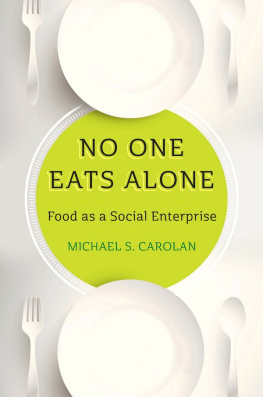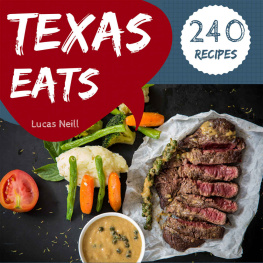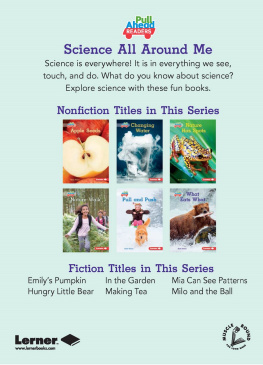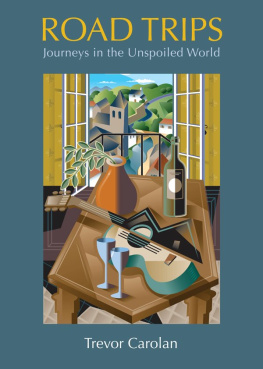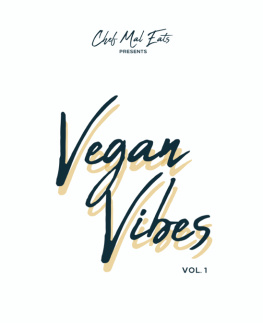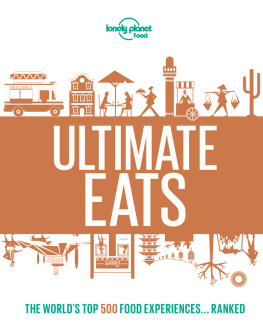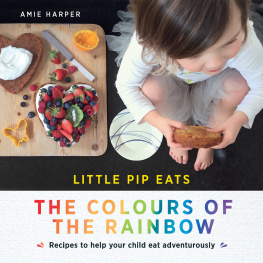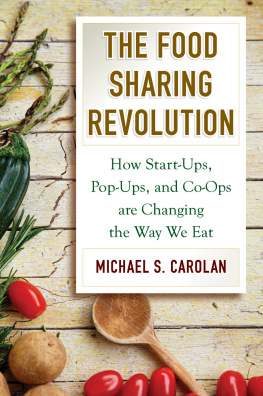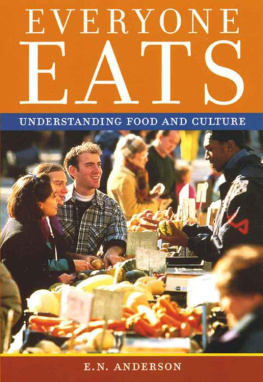Carolan - No One Eats Alone: Food as a Social Enterprise
Here you can read online Carolan - No One Eats Alone: Food as a Social Enterprise full text of the book (entire story) in english for free. Download pdf and epub, get meaning, cover and reviews about this ebook. City: Washington;DC, year: 2017, publisher: Island Press, genre: Politics. Description of the work, (preface) as well as reviews are available. Best literature library LitArk.com created for fans of good reading and offers a wide selection of genres:
Romance novel
Science fiction
Adventure
Detective
Science
History
Home and family
Prose
Art
Politics
Computer
Non-fiction
Religion
Business
Children
Humor
Choose a favorite category and find really read worthwhile books. Enjoy immersion in the world of imagination, feel the emotions of the characters or learn something new for yourself, make an fascinating discovery.
No One Eats Alone: Food as a Social Enterprise: summary, description and annotation
We offer to read an annotation, description, summary or preface (depends on what the author of the book "No One Eats Alone: Food as a Social Enterprise" wrote himself). If you haven't found the necessary information about the book — write in the comments, we will try to find it.
Carolan: author's other books
Who wrote No One Eats Alone: Food as a Social Enterprise? Find out the surname, the name of the author of the book and a list of all author's works by series.
No One Eats Alone: Food as a Social Enterprise — read online for free the complete book (whole text) full work
Below is the text of the book, divided by pages. System saving the place of the last page read, allows you to conveniently read the book "No One Eats Alone: Food as a Social Enterprise" online for free, without having to search again every time where you left off. Put a bookmark, and you can go to the page where you finished reading at any time.
Font size:
Interval:
Bookmark:
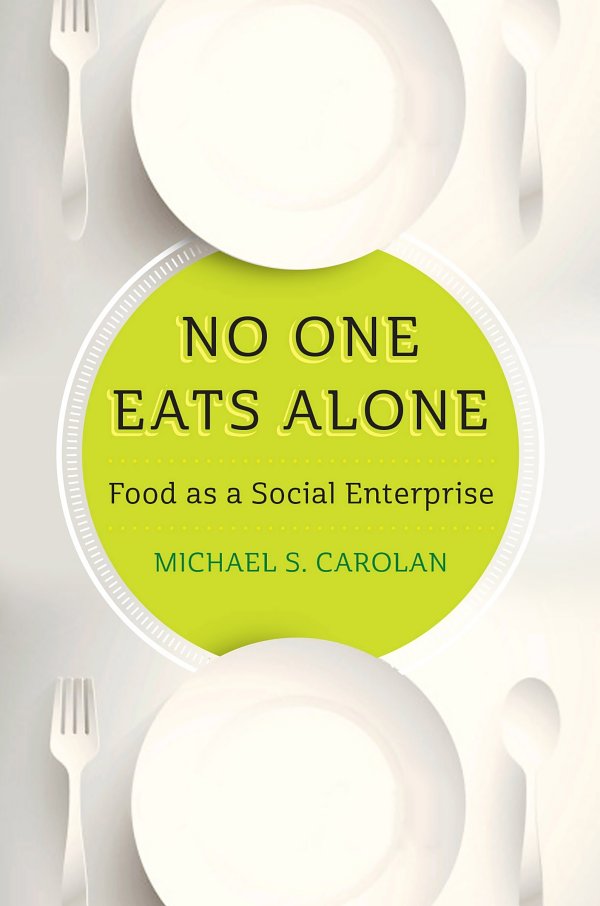
Since 1984, the nonprofit organization Island Press has been stimulating, shaping, and communicating ideas that are essential for solving environmental problems worldwide. With more than 1,000 titles in print and some 30 new releases each year, we are the nation's leading publisher on environmental issues. We identify innovative thinkers and emerging trends in the environmental field. We work with world-renowned experts and authors to develop cross-disciplinary solutions to environmental challenges.
Island Press designs and executes educational campaigns in conjunction with our authors to communicate their critical messages in print, in person, and on line using the latest technologies, innovative programs, and the media. Our goal is to reach targeted audiences-scientists, policymakers, environmental advocates, urban planners, the media, and concerned citizenswith information that can be used to create the framework for long-term ecological health and human well-being.
Island Press gratefully acknowledges major support of our work by The Agua Fund, The Andrew W. Mellon Foundation, The Bobolink Foundation, The Curtis and Edith Munson Foundation, Forrest C. and Frances H. Lattner Foundation, The JPB Foundation, The Kresge Foundation, The Oram Foundation, Inc., The Overbrook Foundation, The S.D. Bechtel, Jr. Foundation, The Summit Charitable Foundation, Inc., and many other generous supporters.
The opinions expressed in this book are those of the author(s) and do not necessarily reflect the views of our supporters.

Island Press' mission is to provide the best ideas and information to those seeking to understand and protect the environment and create solutions to its complex problems. Join our newsletter to get the latest news on authors, events, and free book giveaways. Click here to join now!
Food as a Social Enterprise
Michael S. Carolan

Washington | Covelo | London
Copyright 2017 Michael S. Carolan
All rights reserved under International and Pan-American Copyright Conventions. No part of this book may be reproduced in any form or by any means without permission in writing from the publisher: Island Press, 2000 M Street, NW, Suite 650, Washington, DC 20036.
ISLAND PRESS is a trademark of the Center for Resource Economics.
Library of Congress Control Number: 2016952383
 Printed on recycled, acid-free paper
Printed on recycled, acid-free paper
Manufactured in the United States of America
10 9 8 7 6 5 4 3 2 1
Keywords: food justice, sustainable agriculture, farmworkers, CSA (community supported agriculture), farmers market, food hub, farm-to-table, nose-to-tail, nutrition guidelines, soda tax
No One Eats Alone was years in the making. When you work on something that long, especially on a project that takes you around the world, you become reluctant to take sole credit for whats really the product of a collaborative process. My name might appear on the books cover and spine, but many people made this book possible. Here are a few of those others who helped make this book what it is. If you enjoy the book, applaud them also. If you dont, blame me and me alone.
Bruce Wexler. Author and father-in-law extraordinaire. His encouragement and support early on taught me the artboy, is it everof writing a proposal.
Emily Davis. What can I say? Thanks! just isnt enough. Emily has given me hope about the future of the publishing industry. Emily, my editor, still edits. But even more than that: she helped craft sentences, even a few entire paragraphs. No One Eats Alone would not exist were it not for her; not as an Island Press book, anyway, and certainly not in the form it has taken. She has been a steadfast supporter of this project who refused to let it die. I am forever grateful.
James Hale. My graduate student and the person with whom I talk critical food scholarship more than with any other. Many of my ideas have been shaped by those discussions.
Mike Fleming. My copyeditor and the person who found a way to balance my desire to maintain a conversational narrative with the need to follow the by-the-book rules. Thank you for allowing me to say what I want, how I want.
Mom and Dad. Where did my interest in food come from? Right there. I grew up in a small town in rural Iowa, hometown population: 350. We had, and they still have, an acre-large garden. As children, my sister and I went around town in the summer with a wagon full of corn, selling it door-to-door. And as a family, over the summer we spent hours weeding, picking, canning, pickling, and freezing almost everything we grew. Thank you for that, even though I didnt appreciate those experiences at the time.
Nora, Elena, Joey. They put up with my highs and lows throughout the writing project. They put up with my travel, which regularly took me away from home for entire weeks at a timeNora, I really owe you on that count. I hope projects like this will give our kids (Elena and Joey) some idea of what their dad does, as I know theyll never read my peer-reviewed articles, and would never willfully expose them to such torture.
I also want to thank the following institutions and professional networks that supported this project in their own unique ways: Colorado State University (USA); Korea University (Korea); Australasian Agri-Food Research Network; Otago University (New Zealand); University of Auckland (New Zealand).
I also owe a huge debt to all those who have lent their voices to this book, from those quoted directly to those not quoted but who shaped its arguments by allowing themselves to be interviewed. As noted in the text, this debt extends to hundreds, literally. Thank you, thank you, one and all.
Parts of this project were supported by the National Institute of Food and Agriculture (grant number COL00725) (under the title Food System Resilience along the Front Range) and by the National Research Foundation of Korea (grant number NRF-2013S1A3A2055243).
In our fast-paced, fast-food culture, everyone seems to be eating aloneall the time. Americans report that they eat nearly 50 percent of their meals alone, So why do I claim that No One Eats Alone?
They, and many more, are all part of the story of food.
Yet how often do we interact with this diverse spectrum of people? When was the last time you ate strawberries with the person who picked them, or when was the last time you picked them alongside someone different from yourself? Or knew the name of the farmer who supplied your eggs? Or thought about how we can describe, with a straight face, certain foods as healthy even though they are made using processes that spoil the environment and exploit human beingshave you seen the working conditions that some farm laborers endure? What, precisely, is healthy about that?
Everyone who eatsthat is, everyoneis affected by (which means they also affect) others in our vast foodscapes. I opt for the term
Font size:
Interval:
Bookmark:
Similar books «No One Eats Alone: Food as a Social Enterprise»
Look at similar books to No One Eats Alone: Food as a Social Enterprise. We have selected literature similar in name and meaning in the hope of providing readers with more options to find new, interesting, not yet read works.
Discussion, reviews of the book No One Eats Alone: Food as a Social Enterprise and just readers' own opinions. Leave your comments, write what you think about the work, its meaning or the main characters. Specify what exactly you liked and what you didn't like, and why you think so.

